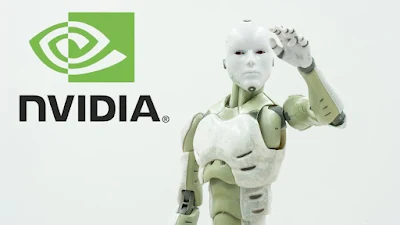Imagine spending an hour listening to a podcast, only to realize the key points could have been summarized in a few minutes. Well, I've done the work for you! I've condensed a fascinating hour-long conversation with Jensen Huang, the brilliant mind behind NVIDIA, into a bite-sized blog post. No need to clear your schedule, just sit back and absorb the most important takeaways about the future of AI, straight from the source.
This isn't just a regurgitation of information; I've carefully curated the highlights, focusing on what matters most to you, especially if you're new to the world of AI or just looking for a quick update. Think of it as your personal cheat sheet to understanding the next technological revolution. So, buckle up and get ready to dive into the exciting world of generative AI and its impact on our lives.
Sure, here is a summary of the video:
The video is a conversation between Jensen Huang, the founder and CEO of Nvidia, and Lauren Goode, a journalist from WIRED. Huang talks about the history of Nvidia and the future of Generative AI.
Here are the key points:
- Nvidia was founded in 1993 by Jensen Huang and Chris Curtis.
- Nvidia has a long history of working in computer graphics, and their GPUs are used in many modern video games.
- In recent years, Nvidia has been focusing on artificial intelligence (AI), and they believe that generative AI is going to be the next big thing.
- Generative AI is a type of AI that can be used to create new things, such as images, videos, and text.
- Nvidia is working on a number of generative AI tools, including one that can be used to create 3D images from text prompts.
- Huang believes that generative AI will have a major impact on many different industries, including science, manufacturing, and entertainment.
- He also believes that generative AI will change the way we work, and that everyone will eventually have an AI assistant.
- One of the challenges of generative AI is that it can sometimes create hallucinations or inaccurate results. Nvidia is working on ways to make generative AI more controllable.
- Another challenge is that generative AI could lead to job losses. However, Huang believes that generative AI will mostly create new jobs and augment human workers.
- Finally, Huang discussed the importance of open standards for generative AI, such as Open USD. This will allow different AI tools to work together and share data.







0 Comments